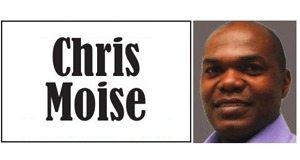Chris Moise –

During the last four years within the Toronto District School Board, various communities across our city experienced school closures.
This was often carried out under a cloak of secrecy. Community members felt that the process was not at all fair. This often brought community members together but little could be done once the process was approved by the board and stamped by the local trustee.
The 2014 city elections were seen by many as a chance for renewal—not only at city hall, but also at the school board. Among the 22 trustees elected, 11 are new to the board. Many signed a student pledge promising to be more transparent, to put students first, and to work co-operatively with their communities and trustee colleagues.
By contrast, the 13 recommendations in the recent Wilson report are simplistic and regressive. Based upon just one month of observation at the school board’s offices, I find it difficult to believe that these recommendations capture the complete picture. The report sees schools as little more than bricks and mortar—and not as the community hubs that they are. Frankly, I would not be surprised if these recommendations were drafted prior to Ms. Wilson’s arrival at the board.
The Wilson report characterizes trustees as meddling busybodies who view themselves as city councillors to the school board.
But, in fact, trustees have been doing exactly what they were elected to do. I hope they continue to ask tough questions and to steer the board in a direction that they deem appropriate.
I sincerely hope that trustees will continue to speak up and to advocate for their local wards and city at large.
Not to do so would be negligence, as I see it.
The board has identified 60 schools that could be slated for closure. Unsurprising, to most, is the fact that these schools are located in the poorest areas of the city. It does not take a genius to see that closing a school in a disenfranchised neighbourhood will further ghettoize that community. The families who use the school space for daycare, children who attend the school, and seniors and other agencies who use the space as a community hub will be displaced—likely to somewhere outside of their community.
Toronto’s demographics continue to change rapidly. With new developments springing up so quickly, a neighbourhood’s school may be under-used in one year and bursting at the seams just a few years later. What will be the solution, then, when all green space has been sold and built upon? To where will communities turn?
Why have we not learned from the lessons of Chicago and other American cities that went through this process years ago—and now find themselves in a state of crisis? It feels like we have another provincial government that is intentionally creating a crisis within our education system in order to serve a political agenda.
Parents and community members who live in these marginalized neighbourhoods have neither the time nor the resources to advocate for themselves to save their schools. They elected a trustee to do this kind of heavy lifting and to do what is right for the community. By and large, though, this is not what is happening currently.
Ask yourself: What would happen if this were to unfold in an affluent neighbourhood? The response would be swift and organized. The issue would be quickly resolved and never again resurrected.
Trustees were elected to serve as stewards of the board and its schools. Their communities democratically elected them. Trustees must stand up and speak up for their communities.
The Wilson report’s recommendations are an enormous threat to local democracy and it is time for Toronto trustees, and trustees province-wide, to voice their collective disapproval of these unacceptable proposals.
The board’s newly elected trustees had no time to become familiarized with their portfolios before the province barged in and began placing demands on them. Even from a non-partisan distance, such behaviour is easily recognizable as bullying. The provincial government must have decided that it was best to strike now—before trustees settle-in. The new trustees’ inexperience is being used against them.
When Premier Kathleen Wynne was a Toronto trustee, she fought tenaciously against the same kinds of aggressive and anti-democratic tactics of Ontario’s Mike Harris conservative government in the 1990s. A few decades later, much remains to be accomplished on the road to recovery.
The changes and school closures recommended by the Wilson report will do even more damage than the Harris government’s slashing and burning. It is a sick twist to discover that, far from being the friend that many assumed, the Wynne Liberals are instead a foe more destructive than the last.
I must admit that, so far, I am disappointed in the new and returning trustees. They have not stood up to the provincial government to argue that the Wilson report is flawed and needs further review. Although half the board is new, all trustees know their communities well enough to express their communities’ needs.
Shaun Chen, the current chair of the board, is now running for the Liberals for a federal seat in Scarborough. It is no wonder, then, that he seems unwilling to challenge the Wynne government’s push to close schools in our city.
He certainly seems reluctant to work with the mayor and members of city council in order to minimize the devastating damage that school closures will have on our communities.
It is refreshing, however, to see mayor John Tory recognize the importance of schools in Toronto neighbourhoods and to see that he has reached out to members of the board. The mayor spoke of schools as community hubs and as investments in our communities—the same kind of language that premier Wynne once used.
 TheBulletin.ca Journal of Downtown Toronto
TheBulletin.ca Journal of Downtown Toronto

